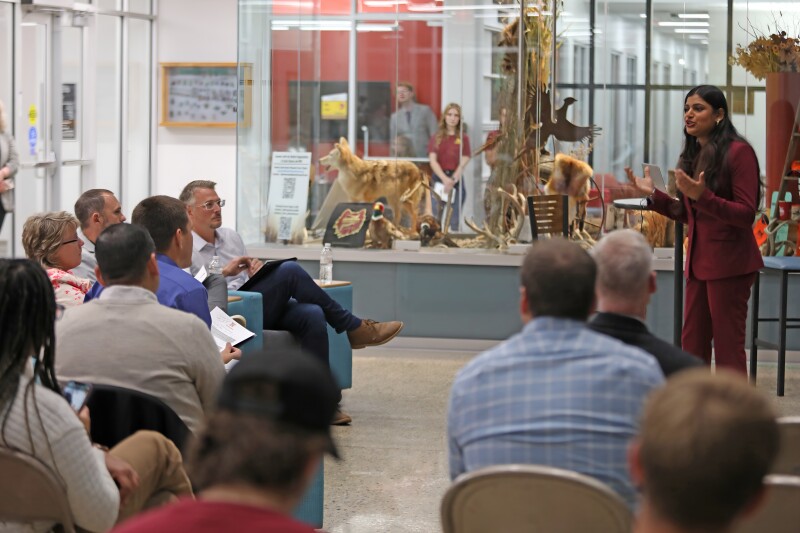
Universities are increasingly establishing innovation hubs that support student and community entrepreneurship. These centers serve as incubators, providing essential resources to help aspiring entrepreneurs develop and launch their businesses. While the focus on entrepreneurship education is not new, institutions are now fostering collaboration among students, community business leaders, and faculty to create dynamic environments for startups and research.
Amy Whitney, director of the University of North Dakota (UND) Center for Innovation, emphasizes the importance of thinking creatively across various disciplines. “Our role is to step in and give a safe space to push those comfort zones even further,” she said. The center, founded in 1984, has evolved into a trusted resource for both students and the regional business community.
Another notable initiative is the Northern Innovation Startup Center at Northern State University in Aberdeen, South Dakota. Launched in November 2022, this business incubator has quickly established partnerships with local organizations such as the Aberdeen Development Corporation to support both students and community entrepreneurs. Director Bea Smith noted that collaboration with existing support organizations made it easy to foster new ideas and initiatives.
Business Education and Skill Development
Both UND and Northern State are closely aligned with their respective business departments to provide aspiring founders with opportunities to refine their ideas and enhance their knowledge. They offer programs that cover essential entrepreneurial skills, including business planning, market analysis, finance, and leadership.
At UND, Whitney highlighted programs like the runway accelerator, which helps students develop business concepts. Successful participants can receive $10,000 mini-grants to advance their ideas, funded through alumni donations and partnerships with the Nistler College of Business and Public Administration and the Edson Larson Foundation.
Mentorship and Community Support
A vital aspect of these university initiatives is the mentorship provided by experienced industry professionals and faculty. Such connections are instrumental in guiding entrepreneurs through various stages of business development.
“We leverage our community relations to help connect innovators with experts,” Smith explained. This approach helps budding entrepreneurs find the resources and support they need, including legal advice and professional networking opportunities.
Whitney reiterated the importance of fostering a culture of innovation, stating, “We want you to bring us wild ideas, and we’re going to help you think outside the box.” The incubators at both universities strive to support not only students but also community members with business aspirations.
Northern State University’s startup center extends its services to individuals aged 18 and over, providing accessible programming both in-person and online. Smith emphasized their mission as an access point for people in the region with business ideas.
At UND, the summer program called Kidpreneurs engages younger students, teaching them about pricing, inventory management, and marketing. Whitney noted that the program allows middle and high school students to present their businesses at local fairs, fostering a spirit of entrepreneurship from an early age.
The support and resources available through university incubators play a crucial role in nurturing innovation and empowering the next generation of entrepreneurs. As Whitney put it, “What is important to us is to create a safe space to share those ideas so we can help connect you to the resources that you need.” This commitment to fostering creativity and collaboration is shaping the future of entrepreneurship in academic settings.







